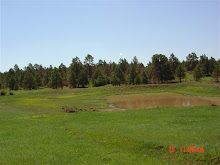Part two of the Denton-Record Chronicle series about the Ruggerio family in Wise County Texas. It is worth reading Aruba Petroleum's written response. I doubt the representative interviewed has to live with the immediate consequences of the way Aruba Petroleum appears to be conducting business in people's backyards.
Drawn into focus
Risks of gas drilling prompt investigation, vigilance as man stands up for family
10:04 AM CDT on Monday, March 29, 2010
By Peggy Heinkel-Wolfe / Staff Writer
EDITOR’S NOTE: This is the second in a two-part series examining the effects of oil and natural gas drilling in eastern Wise and western Denton counties.
By Peggy Heinkel-Wolfe / Staff Writer
WISE COUNTY — Tim Ruggiero had a lot of time to think, sitting in the secretary’s office as his father met privately with the grade school principal.
He remembers shaking as he sat in that chair 30 years ago, afraid after seeing how unhappy his father was and unsure of the punishment that would come.
The tension between Ruggiero and another boy — the school bully — had been growing for some time. That day, the bully had confronted him in the hallway, saying they had to meet after school. Scared, Ruggiero shoved the boy and challenged him to meet right then. The boy was taken aback, saying it couldn’t happen with all the teachers around. Ruggiero punched the boy, giving him a black eye.
“I thought for sure there was going to be hell to pay from Dad,” Ruggiero said.
On the way home, though, Ruggiero’s father told him that the boy had been causing problems for other children and for a long time. He said he was proud that his son did his best in standing up to the bully.
Ruggiero, 45, is a father now. He and his wife, Christine Ruggiero, moved to the northeastern part of Wise County in 1994, buying 10 acres near CR2514 on Star Shell Road for their home and horses.
In September 2009, Aruba Petroleum claimed about four acres of their land to drill a new gas well as part of the lease known geographically as Wright 7H and 8H. The company surprised the couple one September morning, taking down their horse fence and bulldozing their pasture after the family left for work and school.
Company officials said in answers to written questions that they notified the Ruggieros two weeks earlier that work was about to start.
Only peripherally aware of problems in the Barnett Shale, Tim Ruggiero realized he had a lot to learn about the natural gas industry, because it had set up shop in his backyard.
His concern increased the following month, when he learned that health problems had come to the fore in Dish. Ruggiero traveled more than 30 miles to attend a Dish town hall meeting and learn more about the risks of living close to natural gas facilities. He had planned on only listening, but when he saw the faces of Dish residents trying to get information out of state regulators, he decided to speak out.
“For the last 20 years, my job has been talking to people who’ve done things that they should not have done,” said Ruggiero, an investigator for a large retailer. “I’ve learned how to read people and when they are being honest. All I saw in the room that night were victims, legitimate victims. I knew it was bad, but I didn’t know the half of it. I thought, ‘Oh my God, that’s what we have to look forward to.’”
Since then, investigators from both the Texas Railroad Commission and the Texas Commission on Environmental Quality have been out to the Wright lease and the site next to the Ruggieros’ home many times.
On Oct. 29, 2009, Christine Ruggiero reported a massive spill to the Railroad Commission after she watched drilling mud shooting across the waste pit and onto a neighboring pasture for much of the afternoon.
* On Nov. 4, a diesel cloud covered the neighborhood and the Texas Commission on Environmental Quality found elevated levels of ozone-forming pollutants.
* On Nov. 30, TCEQ investigators returned to investigate odors associated with fracking operations.
* On Jan. 17, Feb. 3 and Feb. 20, TCEQ investigators returned to investigate odors associated with condensate production.
* On Feb. 8 and Feb. 27, TCEQ investigators also investigated odors associated with venting from the frack tanks.
* On March 16, the couple filmed and reported a condensate tank both venting and overflowing onto their property.
On March 5, state inspectors submitted the Wright 7H and 8H wells for enforcement, making the site the first Barnett Shale well head to receive a notice of violation since the Texas Commission on Environmental Quality ended its “Find and Fix” initiative, according to agency spokesman Terry Clawson. Read full story>>>





